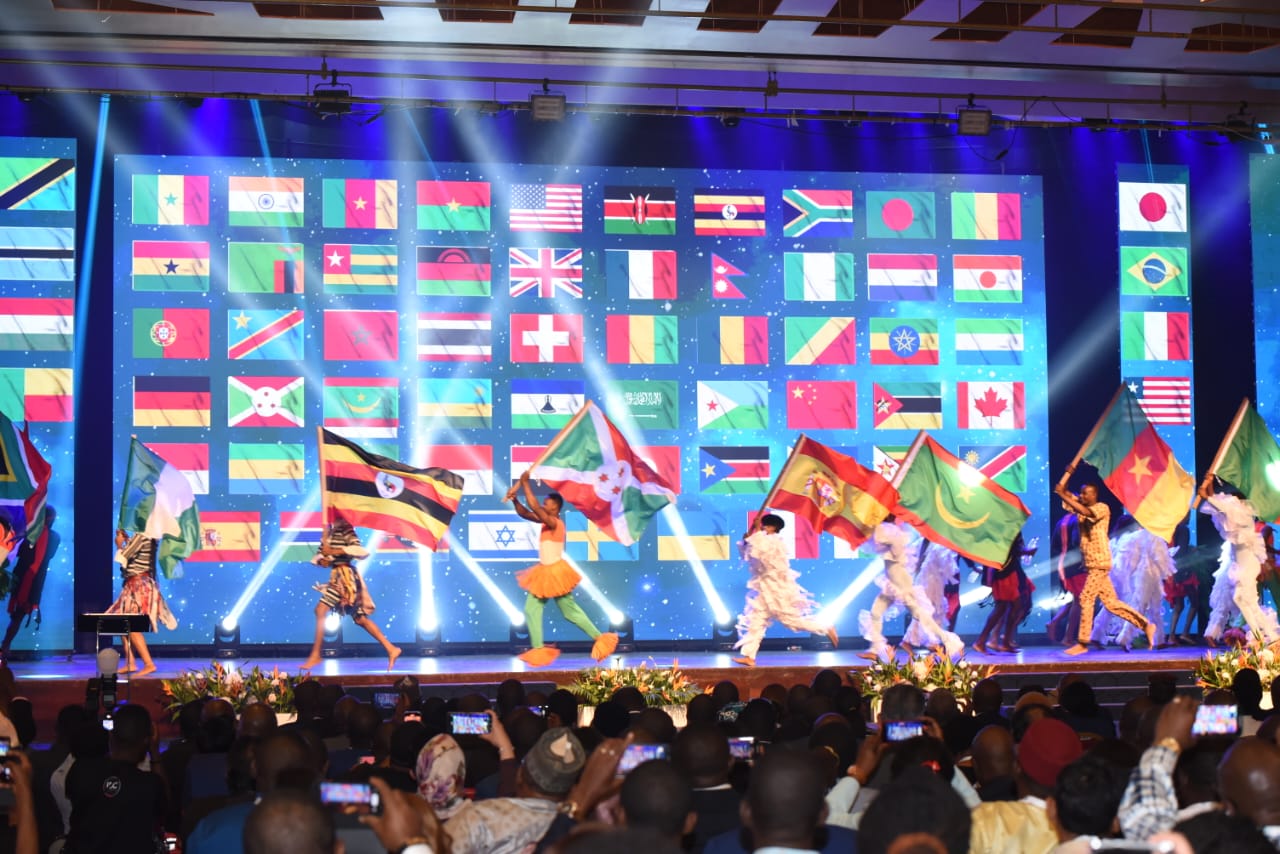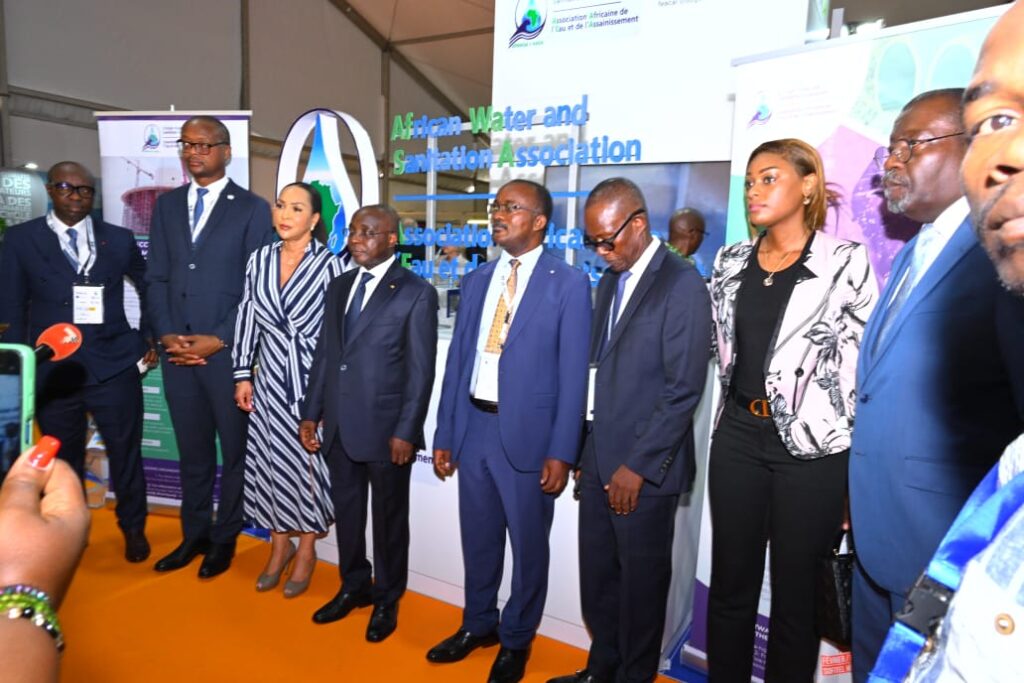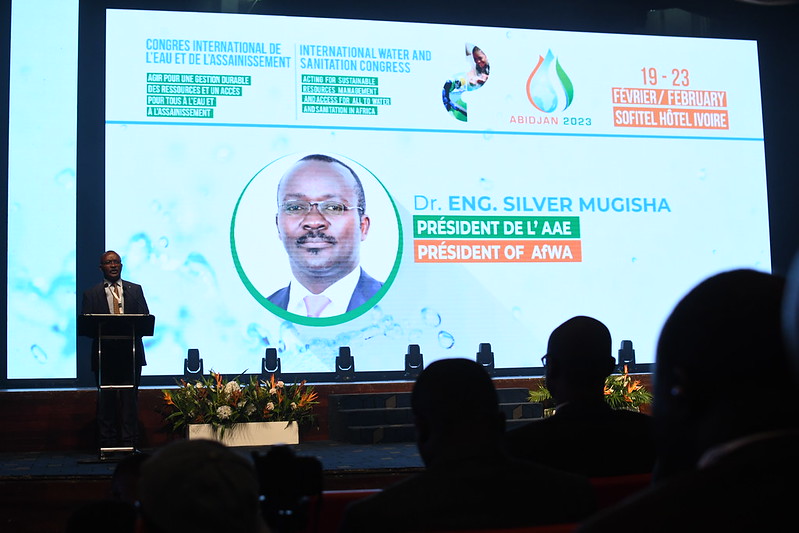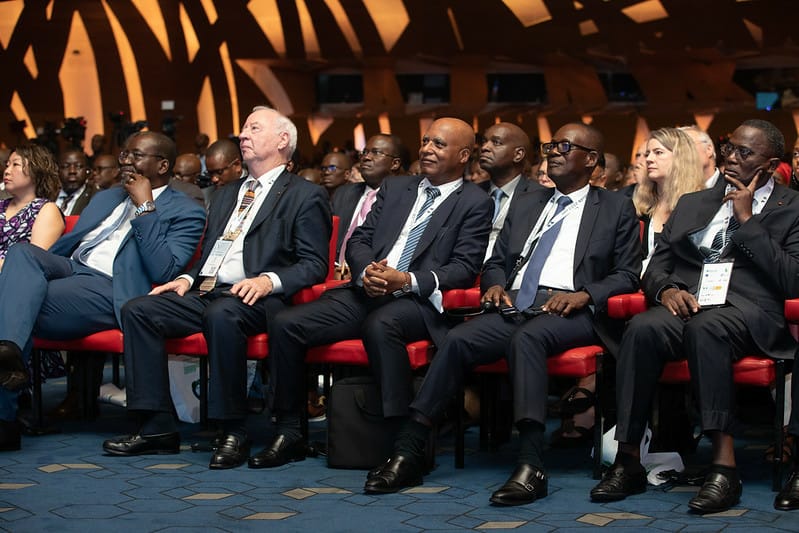
ABIDJAN —The 21st African Water Association International Congress and Exhibition, and the 7th Faecal Sludge Management Conference closed in the Ivorian commercial capital, Abidjan with a call for stronger commitments to ensure universal access to clean water and sanitation for all by 2030.
The conference that was held from February 19 to 23rd—gathered over 2000 social and economic actors including experts and researchers who jointly stressed that tackling the challenges of water and sanitation in Africa has become more imperative as the continent continues to experience the highest population growth.
The conference, also attended by leading financial institutions such as the African Development Bank (AfDB) discussed the urgency of redefining local government planning for sanitation, as well as the role of the private sector in achieving the United Nations Sustainable Development Goal 6 (SDG6) on universal access to water and sanitation by 2030.
In a joint declaration announced at the end of the weeklong event, African water sector players recommended financing facilities for access to drinking water services in critical infrastructures such as Health centers and schools.
“We aim at mobilizing sufficient and sustainable financial resources for African countries for the financing of planning and pre-project studies projects, financing of new investments, financing of maintenance and management of drinking water and drinking water access facilities sanitation in rural areas, peri-urban areas and Urban,” the declaration reads in part.
Dr. Silver Mugisha, the African Water and Sanitation President and the managing director of the National Water and Sewerage Corporation(NWSC) in Uganda, highlighted five factors for utility managers in Africa to pay close attention to including technological innovation, evolving sustainable infrastructure financing options, strengthening people and systems, streamlining corporate governance and enabling conversation, and inculcating a strong culture through relevant capacity building and learning systems.
Dr. Mugisha who was during the congress re-elected to head the group for another two-year term (2023-2025) also announced the change of the Association’s name to the “African Water and Sanitation Association” to include sanitation, and called for solutions building for both water and sanitation. He appealed to the participants to go back with actionable take-home ideas for the interests of the people in different African societies in the water and sanitation sector.


He also said that the water and sanitation sector is grappling with strategic plans with inadequate clarity, aging infrastructure, rapid urbanization which stresses the water system, and insufficient infrastructure financing, resulting in operational inefficiencies.
He reported that the AFWSA board had come up with a reformed, strategic and technical council with a number of specialized reforms aimed at increasing the offering the association shall be giving to the members and also do more in enhancing budgets.
“We are going to increase the budget for the establishment of the African water academy and we are going to do that as another vehicle for giving a better offering to our members,” he said.
Mr. Osward Chanda, the director of the water development and sanitation department at the AfDB highlighted the benefits of investing in water and sanitation – contributing to 1.5% of the global GDP and generating at least 200% for each dollar invested.
He also said that challenges of water and sanitation require innovation and approaches aimed at increasing access to water and sanitation in Africa adding that water is a resource that creates jobs and facilitates sustainable development. Mr. Chanda urged greater response and awareness, including more funding to improve access to water and sanitation for all. He added that water and sanitation are at the heart of sustainable development and key to the survival of all people.
Mr. Chanda also commended Uganda NWSC as one of the most innovative utilities in Africa. He said AfDB was very happy with Dr. Mugisha -led NWSC—saying that the Ugandan utility body has remained a trendsetter for Africa.
“AfDB is very happy with NWSC as a trendsetter utility. We urge them to innovate more. Innovate more, continue to digitize and count on our support,” he added.
Ms. Jennifer William, Executive Director of Fecal Sludge Management Alliance, reiterated the need to do more to achieve the UN Sustainable Development Goal 6 of clean water and sanitation for all by 2030. She called for the preparation, engagement, and mentoring of women and youth in the sector.
“We must prepare our leaders of tomorrow to let them be seen, heard, and give them space to lead us. The younger generation can teach us how to set aside our differences and work together.”



